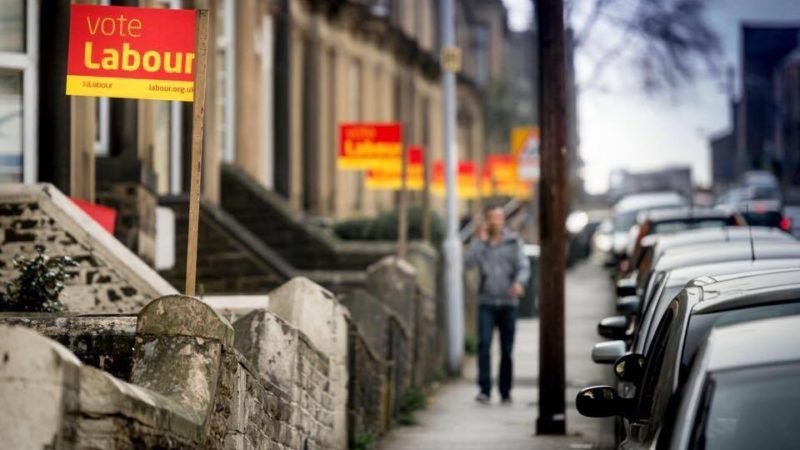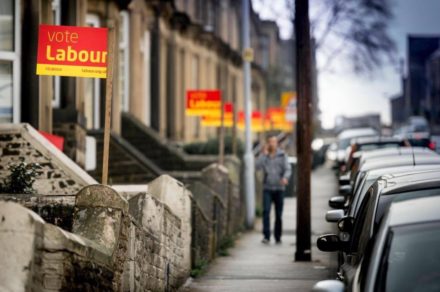

A couple of years ago I worked on campaigns in an area in the south of Cardiff. A poor area, where a lot of people felt that politics and the whole system that governs their lives had neglected them. A traditional Labour heartland where a vote we took for granted now looks up for grabs.
A group of us – Labour members and the Labour MP – started slowly building a community campaign to fight a relatively small issue to get used hypodermic needles cleaned up. We won, made some progress, however imperfect, and then moved onto a bigger issue: radicalisation of young people. Again, we won some things. We got the police to make changes to how they worked. We made progress, but of course the problem persists.
Crucially, people who were previously suspicious of politics were taken on a journey through the process. They understood the constant negotiation and compromise involved in public life. The fact that the institutions governing us aren’t belligerent towards those they serve, but the difficulties of service delivery and governance with so many competing interests means they are often imperfect. And through the process they developed better relationships with their institutions – from their schools to their youth centre, to their police force and MP.
On General Election day, we saw these people put up garden posts supporting Labour, our vote was stronger than elsewhere and turnout surprisingly high. Those who otherwise may have repeated the benign anti-politics clichés that, repeated ad nauseam, become a cancer in our democracy were instead proud to display they were voting for a mainstream, moderate party in part because they had developed a relationship with it via local action.
Social democrats, and indeed others from across political traditions, must focus energy and resource on rebuilding this relationship between people and politics if we’re to regroup from the turmoil of the last year. The long, grinding effort to renew the trust in the institution of politics, and institutions across society, has to start immediately if people are to feel power between their fingertips again – the crucial antidote to the cynicism and hatred of politics that is infecting electorates.
Even though the often loud, entitled, angry protestations of those who queued up to vote ‘Leave’ or Trump seemed like the cries of people who thought they could have everything with no compromise, it would be a mistake to take this at face value. People don’t want the world. They just want honest brokers running things and a bit of a sense that they have control over what goes on around them.
The extreme manifestation of the frustration they have with not feeling those things was what we saw in the UK in June and, to an extent, in the US in November.
These votes were a kick back at the institutions around people that they feel, with good reason, have been shafting them for years: especially since 2008. The financial system collapsed, and people who did nothing to cause it were asked to take the burden of fixing it. They were assured it’d be worth it by governments, politicians of all colours, businesses, and experts. “We’re all in this together”, they were told – a promise that they’d have a stake in whatever came from the pain.
It was a massive gamble with the trust in our democracy, and it failed.
Fast forward a few years. As their pain continued to get worse, people were being told there was a recovery. Things were looking up again, according to the people that they now had a useful shorthand for: “the Establishment”.
Not to them. Their wages were still frozen. And that was if they could find a job. They couldn’t get on the housing ladder. They couldn’t fill up the car or heat the living room when they were a bit cold. The odd night out for dinner? The Christmas present at the top of their daughter’s list? Forget it.
Gradually, their trust in the institutions around them – the institutions that had been asking them to brave the rain for the spoils of the rainbow – eroded. And there was no safety net. The communities that had previously given people their sense of stake and identity had abraded. The workplace, a place talked about to them by their parents’ generation as one of solidarity and friendship as well as dignity and fair remuneration, had ceased to provide any of those things.
So it wasn’t a surprise that when a referendum and, over the pond, a presidential election arrived and every single one of those institutions that they felt shafted by – politics, business, experts, the vast majority of institutional knowledge – told them a vote to ‘Remain’ would be best for them, they finally struck back. Time to “take back control”.
So what now?
Policy responses have to wait. This isn’t just about the pound or dollar in people’s pockets. It’s about their power.
We need years of renewal, and there is no shortcut. For a political party, this has to come conversation by conversation, activist to neighbour, Councillor and MP to constituent. It also has to come through action. A small group of party members working with their MP and non-affiliated people in a community to campaign for a few streets to be cleaned is a better and more sustainable way of building trust than a new leader or a shiny new policy. Institutions cease to be faceless, and people see that the world around them does respond to them – however imperfectly.
The link between the people and their politics and institutions was breaking when the 2008 crash struck. Brexit and Trump show that is now broken.
If we are to rebuild a consensus for the liberal, Labour social democracy that we think will bring more opportunity and prosperity to people, reforging this relationship must be the starting point of our mission. Before we give them policies, we need to help people take their power.
Stewart Owadally is a Labour activist who previously worked on the Britain Stronger In Europe campaign.




More from LabourList
‘Tackling poverty should be the legacy of Keir Starmer’s government’
‘The High Court judgment brings more uncertainty for the trans community’
‘There are good and bad businesses. Labour needs to be able to explain the difference’